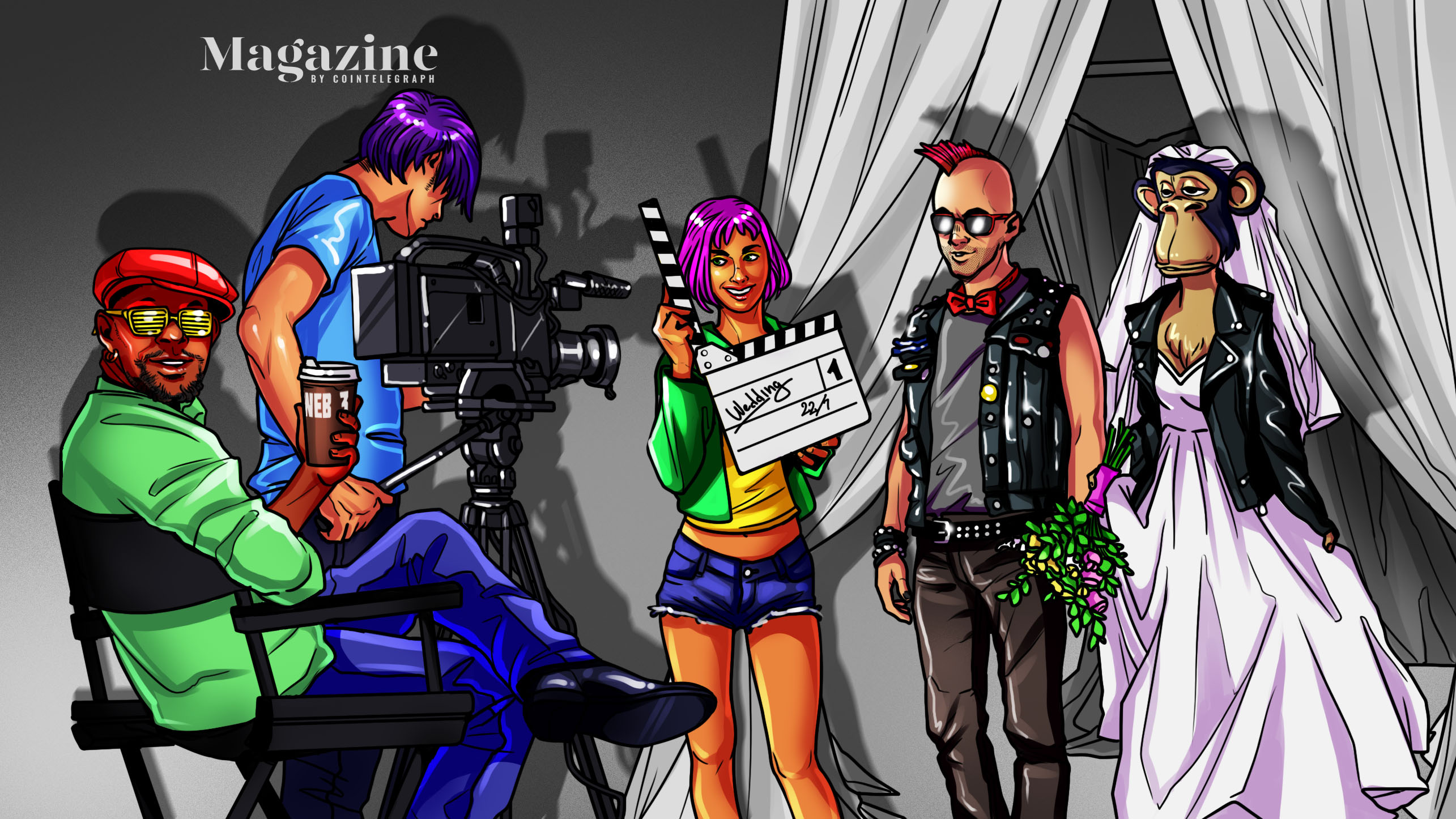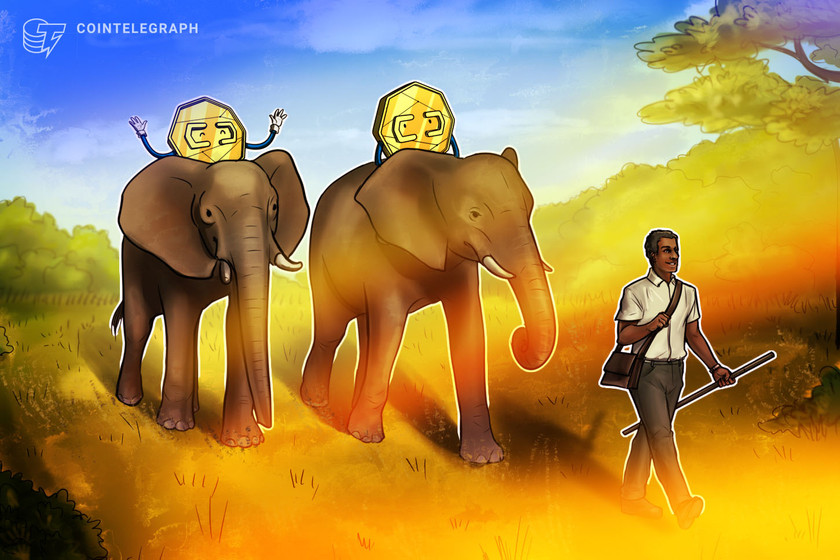NFT Communities Greenlight Web3 Movies: A Decentralized Future for Fans and Hollywood
The traditional film industry is one of the most centralized and traditional of all. Only a handful of movie studios and streaming conglomerates control the lion's share of the global movie market.
But non-fungible tokens (NFTs) and a growing community of crypto-enthusiast filmmakers may well disrupt the industry.
Some independent projects offer insight into Web3 filmmaking, while others provide a window into distribution. Decentralized streaming also shows what community film development and distribution might look like in the not-too-distant future. Thanks to the popularity of NFTs, the Film3 ecosystem is poised to evolve beyond its embryonic stage. Although the trend is very recent and there are a host of issues that need to be addressed, keep an eye on this emerging crypto sector as it continues to gain momentum.

During panel discussions at the Cannes Film Festival in May, director Miguel Faus explained how he used NFTs from his short film Calladita to fund a $1 million feature of the same name of dollars. In 2019, Faus produced his short film with fiat using traditional crowdfunding. Today, it sells tiered NFT packages to subsidize feature film. “The planned budget is $950,000. So far we have raised $650,000 through NFT sales. The goal is for all funding to come from NFTs,” Faus told Magazine.
Filmmaker Mark O'Connor, also on a panel at Cannes, introduced his first Web3 distribution model at the film festival: the Stalker Movie Pack, an NFT version of the 1990s DVD movie pack.

In 2012, O'Connor produced and directed the psychological thriller Stalker. The feature went on to win the Underground Cinema film festival and in 2014 was released on DVD in Ireland. Still, O'Connor wanted the film to be completely independent and chose not to release it internationally. Eight years and a thriving NFT ecosystem later, O'Connor fully controls the intellectual property and believes this traditionally crowd-funded film "will be the future of movie distribution."
Do filmmakers really need decentralized cinema?According to O'Connor, it's about controlling intellectual property. Often Web2 filmmakers find themselves in circumstances where they lose control of their intellectual property. Losing control of a film's rights also means losing access to its potential benefits.

O'Connor thinks there's a "cascade system" in the industry right now. "When you release a film the traditional way, the theater takes 70% and then, of what's left, the distributor takes 15%. Then you have to pay commercial agent fees and different fees," says O'Connor. In the end, a filmmaker with a successful project can often end up with no share of the profits.
Faus tells Magazine that filmmakers often create the IP and do all the heavy lifting, only to become temporary contract employees attached to their own projects. "Writers and directors like me start with an idea, develop an entire project, write a screenplay, do the whole thing, make the movie, direct it, but end up doing it all as a hire job for a company or a producer. or a financier who actually owns the movie, and sometimes that system isn't great.
Faus believes that...

The traditional film industry is one of the most centralized and traditional of all. Only a handful of movie studios and streaming conglomerates control the lion's share of the global movie market.
But non-fungible tokens (NFTs) and a growing community of crypto-enthusiast filmmakers may well disrupt the industry.
Some independent projects offer insight into Web3 filmmaking, while others provide a window into distribution. Decentralized streaming also shows what community film development and distribution might look like in the not-too-distant future. Thanks to the popularity of NFTs, the Film3 ecosystem is poised to evolve beyond its embryonic stage. Although the trend is very recent and there are a host of issues that need to be addressed, keep an eye on this emerging crypto sector as it continues to gain momentum.

During panel discussions at the Cannes Film Festival in May, director Miguel Faus explained how he used NFTs from his short film Calladita to fund a $1 million feature of the same name of dollars. In 2019, Faus produced his short film with fiat using traditional crowdfunding. Today, it sells tiered NFT packages to subsidize feature film. “The planned budget is $950,000. So far we have raised $650,000 through NFT sales. The goal is for all funding to come from NFTs,” Faus told Magazine.
Filmmaker Mark O'Connor, also on a panel at Cannes, introduced his first Web3 distribution model at the film festival: the Stalker Movie Pack, an NFT version of the 1990s DVD movie pack.

In 2012, O'Connor produced and directed the psychological thriller Stalker. The feature went on to win the Underground Cinema film festival and in 2014 was released on DVD in Ireland. Still, O'Connor wanted the film to be completely independent and chose not to release it internationally. Eight years and a thriving NFT ecosystem later, O'Connor fully controls the intellectual property and believes this traditionally crowd-funded film "will be the future of movie distribution."
Do filmmakers really need decentralized cinema?According to O'Connor, it's about controlling intellectual property. Often Web2 filmmakers find themselves in circumstances where they lose control of their intellectual property. Losing control of a film's rights also means losing access to its potential benefits.

O'Connor thinks there's a "cascade system" in the industry right now. "When you release a film the traditional way, the theater takes 70% and then, of what's left, the distributor takes 15%. Then you have to pay commercial agent fees and different fees," says O'Connor. In the end, a filmmaker with a successful project can often end up with no share of the profits.
Faus tells Magazine that filmmakers often create the IP and do all the heavy lifting, only to become temporary contract employees attached to their own projects. "Writers and directors like me start with an idea, develop an entire project, write a screenplay, do the whole thing, make the movie, direct it, but end up doing it all as a hire job for a company or a producer. or a financier who actually owns the movie, and sometimes that system isn't great.
Faus believes that...
What's Your Reaction?






















